1. Computer Science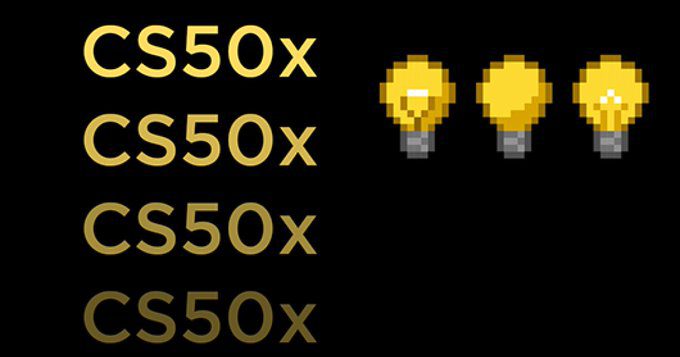
What you’ll learn
- A broad and robust understanding of computer science and programming
- How to think algorithmically and solve programming problems efficiently
- Concepts like abstraction, algorithms, data structures, encapsulation, resource management, security, software engineering, and web development
- Familiarity with a number of languages, including C, Python, SQL, and JavaScript plus CSS and HTML
- How to engage with a vibrant community of like-minded learners from all levels of experience
- How to develop and present a final programming project to your peers
Course description
This is CS50x, Harvard University’s introduction to the intellectual enterprises of computer science and the art of programming for majors and non-majors alike, with or without prior programming experience. An entry-level course taught by David J. Malan, CS50x teaches students how to think algorithmically and solve problems efficiently. Topics include abstraction, algorithms, data structures, encapsulation, resource management, security, software engineering, and web development. Languages include C, Python, SQL, and JavaScript plus CSS and HTML. Problem sets are inspired by real-world domains of biology, cryptography, finance, forensics, and gaming. The on-campus version of CS50x, CS50, is Harvard’s largest course.
Students who earn a satisfactory score on 9 problem sets (i.e., programming assignments) and a final project are eligible for a certificate. This is a self-paced course–you may take CS50x on your own schedule.
The course covers:
- HTML, CSS
- Git
- Python
- Django
- SQL, Models, and Migrations
- JavaScript
- User Interfaces
- Testing, CI/CD
- Scalability and Security
Link: https://pll.harvard.edu/course/cs50-introduction-computer-science?delta=0
2. Game Development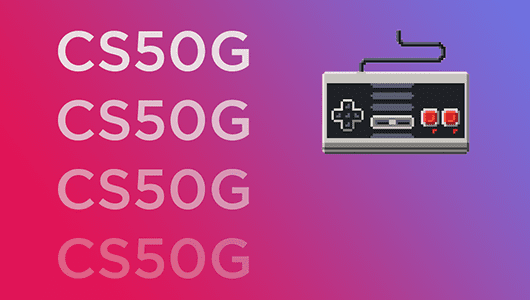
Course description
In a quest to understand how video games themselves are implemented, you’ll explore the design of such childhood games as Super Mario Bros., Pong, Flappy Bird, Breakout, Match 3, Legend of Zelda, Angry Birds, Pokémon, 3D Helicopter Game, Dreadhalls, and Portal.
Via lectures and hands-on projects, the course explores principles of 2D and 3D graphics, animation, sound, and collision detection using frameworks like Unity and LÖVE 2D, as well as languages like Lua and C#. By class’s end, you’ll have programmed several of your own games and gained a thorough understanding of the basics of game design and development.
What you’ll learn:
- Principles of 2D and 3D graphics, animation, sound, and collision detection
- Unity
- Lua, C#
- Basics of game design and development
Link: https://pll.harvard.edu/course/cs50s-introduction-game-development?delta=0
3. Programming with Python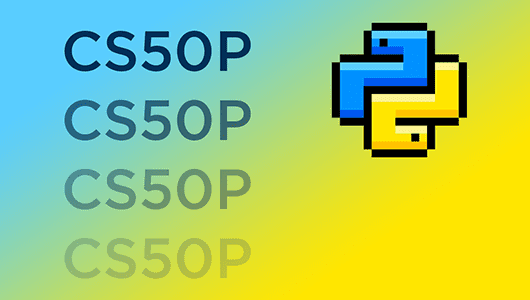
What you’ll learn:
- Functions, arguments, return values
- Variables, types, exceptions
- Conditionals, Boolean expressions
- Loops
- Objects, methods
- File I/O, libraries
Link: https://pll.harvard.edu/course/cs50s-introduction-programming-python?delta=0https://t.co/Z6gmcFvVJW
4. Web development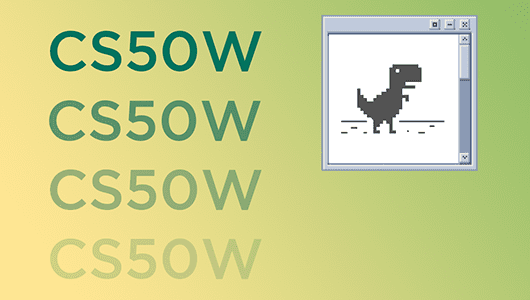
Course description
Topics include database design, scalability, security, and user experience. Through hands-on projects, you’ll learn to write and use APIs, create interactive UIs, and leverage cloud services like GitHub and Heroku. By the course’s end, you’ll emerge with knowledge and experience in principles, languages, and tools that empower you to design and deploy applications on the Internet.
What you’ll learn:
- HTML, CSS
- Git
- Python
- Django
- SQL, Models, and Migrations
- JavaScript
- User Interfaces
- Testing, CI/CD
- Scalability and Security
5. Artificial Intelligence with Python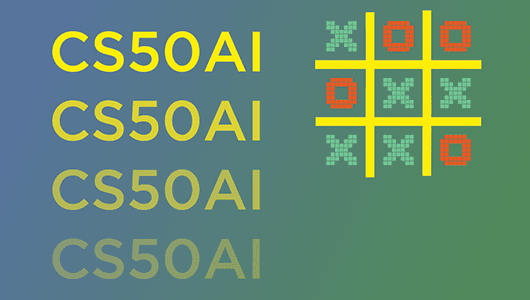
Course description
AI is transforming how we live, work, and play. By enabling new technologies like self-driving cars and recommendation systems or improving old ones like medical diagnostics and search engines, the demand for expertise in AI and machine learning is growing rapidly. This course will enable you to take the first step toward solving important real-world problems and future-proofing your career.
CS50’s Introduction to Artificial Intelligence with Python explores the concepts and algorithms at the foundation of modern artificial intelligence, diving into the ideas that give rise to technologies like game-playing engines, handwriting recognition, and machine translation. Through hands-on projects, students gain exposure to the theory behind graph search algorithms, classification, optimization, reinforcement learning, and other topics in artificial intelligence and machine learning as they incorporate them into their own Python programs. By the course’s end, students emerge with experience in libraries for machine learning as well as knowledge of artificial intelligence principles that enable them to design intelligent systems of their own.
Enroll now to gain expertise in one of the fastest-growing domains of computer science from the creators of one of the most popular computer science courses ever, CS50. You’ll learn the theoretical frameworks that enable these new technologies while gaining practical experience in how to apply these powerful techniques in your work.
What you’ll learn
- Graph search algorithms
- Reinforcement learning
- Machine learning
- Artificial intelligence principles
- How to design intelligent systems
- How to use AI in Python programs
Link: https://pll.harvard.edu/course/cs50s-introduction-artificial-intelligence-python?delta=0
6. Mobile App Development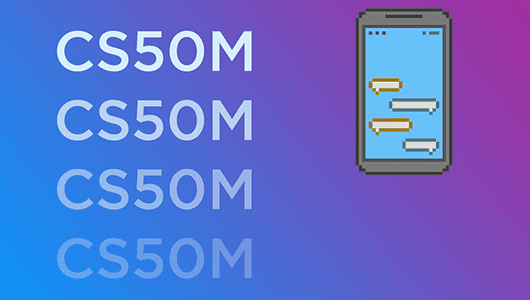
Course description
This course picks up where CS50 leaves off, transitioning from web development to mobile app development with React Native.
The course introduces you to modern JavaScript (including ES6 and ES7) as well as to JSX, a JavaScript extension. Through hands-on projects, you’ll gain experience with React and its paradigms, app architecture, and user interfaces. The course culminates in a final project for which you’ll implement an app entirely of your own design.
What you’ll learn:
- JavaScript
- ES6
- React, JSX
- Components, Props, State, Style
- Components, Views, User Input
- Debugging
Link: https://pll.harvard.edu/course/cs50s-mobile-app-development-react-native?delta=0


